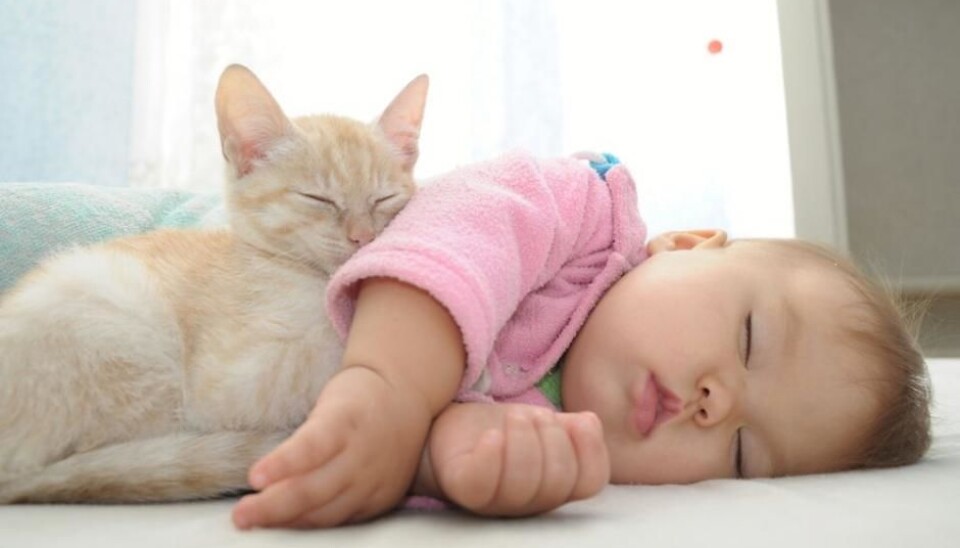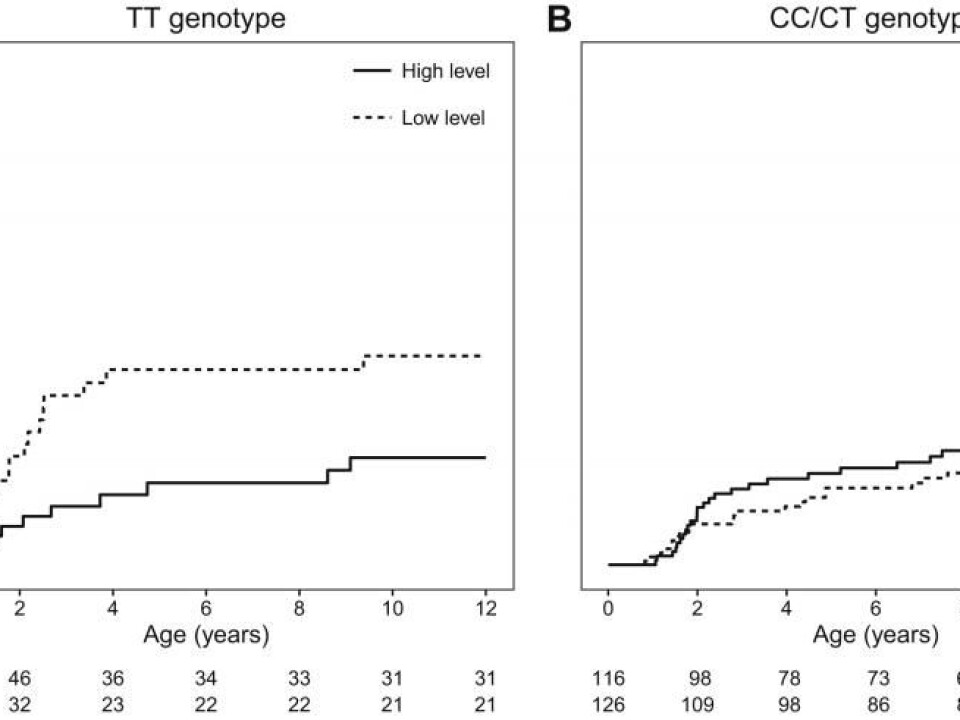
Cats protect newborns against asthma
By switching off a genetic variant linked to increased risk of asthma.
We know that cats keep mice away. But did you know that they can also help prevent asthma in newborns? That is the conclusion of a new study by scientists from the Copenhagen Studies on Asthma in Childhood Research Center (COPSAC), Denmark.
Cats neutralise the effect of a gene that, when activated, doubles the risk of developing asthma in children.
Having a cat in the home when a child is born means that this gene is never activated.
The result surprised co-author Hans Bisgaard, professor of paediatrics and the head of COPSAC. Not because the results will lead to any new treatments—they will not—but because the study shows that the genes behind a disease can be switched on or off depending on the environment around us.

“For me, this is the core message because it’s a recognition in the direction of how disease occurs. It documents the interplay between genetics and the environment we live in, and in particular that this occurs very early in life, both during pregnancy and in the home,” says Bisgaard.
Cats help children who carry a particular gene
In the new study, Bisgaard, Jakob Stokholm, and three colleagues from COPSAC and Næstved Hospital, Denmark, studied data from 377 Danish children whose mothers have asthma.
They mapped the children’s genes and collected information about their upbringing and surroundings, both by taking samples from the children’s home and by a number of surveys taken by the parents.
The results reveal that cats remove the increased risk of developing asthma among children with a particular variation of the gene 17q21, called TT, which has the strongest impact on whether or not a child could develop asthma.
Almost one in three children in the study carried the TT gene variant, regardless of whether or not their mother had asthma.
No protection from dogs
Interestingly, only cats seem to reduce the risk of developing asthma among children carrying the TT gene variant. Dogs do not have the same effect, say the scientists behind the new study.
Their analyses suggest that cats not only protect against asthma, but also against pneumonia and inflammation in the lower airways of small children (bronchitis).
Gene 17q21 was previously known to be involved in some way in all three conditions, which indicates Bisgaard and colleagues have found something quite substantial in the relationship between cats and genes, says Doctor Arne Høst, who lecturers in childhood disease at the University of Southern Denmark. He also studies asthma at H.C. Andersen’s Children’s Hospital in Odense, Denmark, but was not involved in the study.
“It’s a very thorough study and they have investigated many things, so it’s a plausible connection. It’s very exciting that they find this connection because other studies have struggled to conclude anything final,” says Høst.
“Now it looks like the effect is linked to a particular gene-variant, which goes to show just how complex the development of asthma and allergies are. It’s not only about genes and the environment, but how the two interact, and there’s so much that we still don’t know,” he says.
How much exposure do you need?
Høst would like to see other studies confirm the results. As would Tove Fall, lecturer in epidemiology at Uppsala University, Sweden. She has previously studied the connection between animals and human disease in large register studies.
“The study is well-thought-out and the findings are very interesting. If they are confirmed by subsequent studies, then it would be interesting to figure out what kind of exposure to cats during childhood is needed to lower the risk of childhood asthma among bearers of the risk-variant,” writes Fall in an email to ScienceNordic’s partner, Videnskab.dk.
Growing up with cats also has disadvantages
The new study does not show what it is about the cats, which help protect children against asthma.
An earlier study from COPSAC showed that cats activate a particular gene in the body, which triggers eczema in children. Trials to deactivate the asthma gene, revealed that doing so can activate the eczema gene.
Another unresolved issue in the study is how cats actually influence our genes. And why there are no similar effects with dogs who also walk around on four legs and live in our homes?
For now, this is pure guess work.
Lead-author Jakob Stokholm suspects that it could be related to the bacteria that cats carry and perhaps fungi or viruses that they bring into the home, which can influence our immune system.
“This [research] is of course interesting to develop, because if we can explain these mechanisms, it opens up opportunities to isolate them and to protect against the disease,” says Stokholm, a post doc at COPSAC.
--------------------
Read more in the Danish version of this story on Videnskab.dk
Translated by: Catherine Jex









